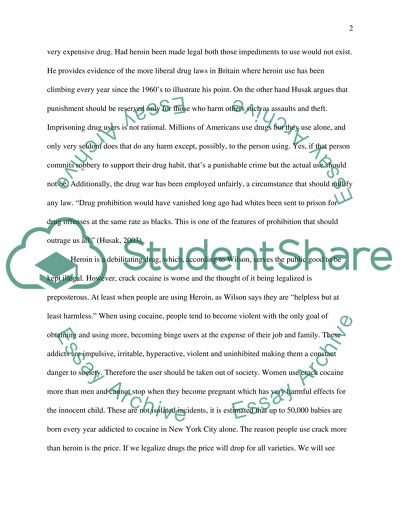Cite this document
(“Legalization of Drugs Essay Example | Topics and Well Written Essays - 1000 words - 1”, n.d.)
Legalization of Drugs Essay Example | Topics and Well Written Essays - 1000 words - 1. Retrieved from https://studentshare.org/philosophy/1452648-write-a-compare-contrast-essay-about-two-articles
Legalization of Drugs Essay Example | Topics and Well Written Essays - 1000 words - 1. Retrieved from https://studentshare.org/philosophy/1452648-write-a-compare-contrast-essay-about-two-articles
(Legalization of Drugs Essay Example | Topics and Well Written Essays - 1000 Words - 1)
Legalization of Drugs Essay Example | Topics and Well Written Essays - 1000 Words - 1. https://studentshare.org/philosophy/1452648-write-a-compare-contrast-essay-about-two-articles.
Legalization of Drugs Essay Example | Topics and Well Written Essays - 1000 Words - 1. https://studentshare.org/philosophy/1452648-write-a-compare-contrast-essay-about-two-articles.
“Legalization of Drugs Essay Example | Topics and Well Written Essays - 1000 Words - 1”, n.d. https://studentshare.org/philosophy/1452648-write-a-compare-contrast-essay-about-two-articles.


